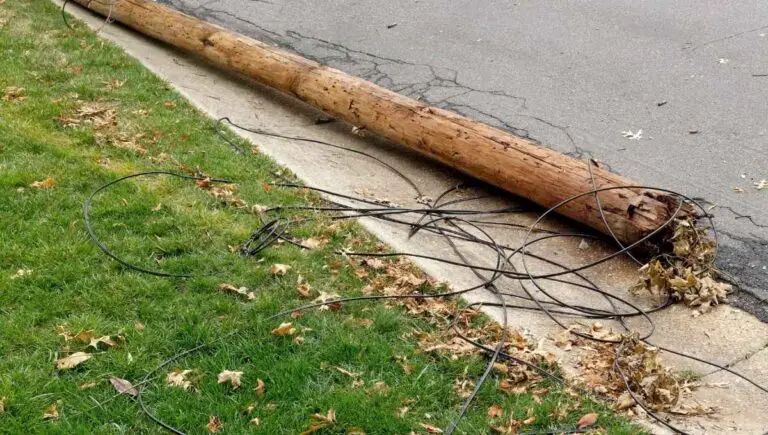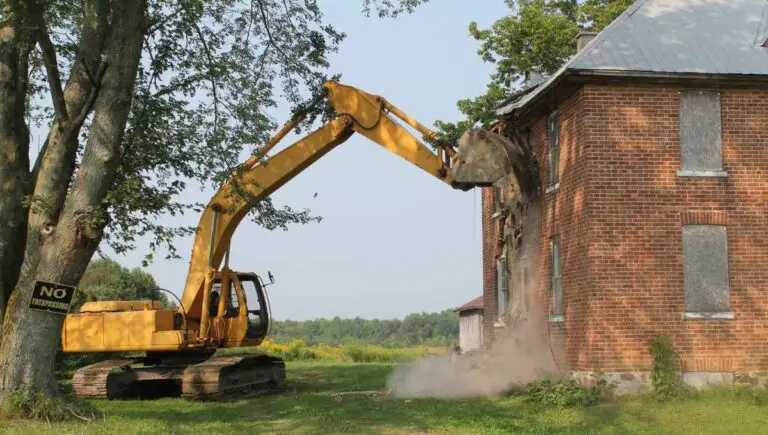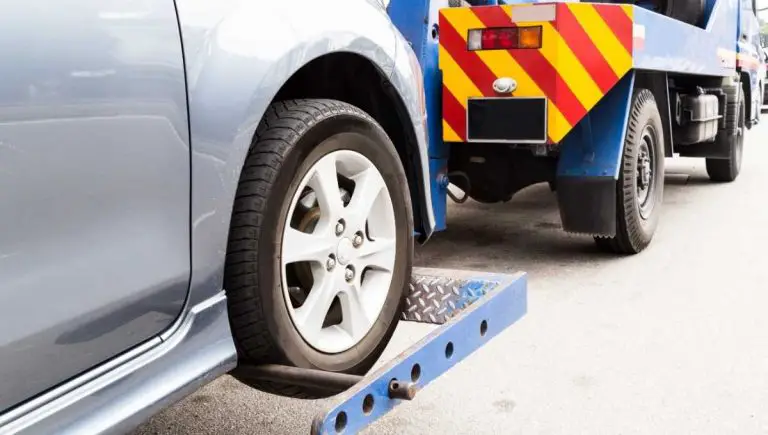Can a Utility Company Come on My Property Without Permission?

Many homeowners have experienced having utility workers come onto their property without prior notice or appointment. Others have been surprised to come home and find that their yard has been dug up by utility company workers. Can a utility company come on my property without permission? The answer may surprise you…
So, can a utility company come on my property? The short answer is yes, they can. A utility company has the right to come on your property without permission if an easement exists on the property.
This is pretty crazy right?! Is there anything that you can do about this and do you have the authority to make them leave?
In this article we’ll discuss:
- Utility Easements
- Knowing your rights as a property owner
- How to find out if a utility easement exists on your property
- And lastly, what you can do if utility workers come onto your property uninvited.
Here’s a Quick Pro Tip!
While you can’t really prevent a utility company from coming on your property, it’s good to know what they’re doing when they are there.
Having a decent security system like a Ring Video Doorbell or Outdoor Security Cameras (both on Amazon) is a smart thing to do in this situation.
How Do Utility Easements Work?
Underground power lines or cables run through many properties in the U.S. What this means is that utility companies have easement rights over someone’s property and with that, they are allowed to use that property, even without consent.
Utility easements fall under easement in gross, which also happens to be the most common form of easement for private properties. With utility easements, utility companies and their subcontractors can step foot on your land, without being charged for trespassing.
Why Do Easements Exist?
You might wonder why these easements exist in the first place. Utility easements are generally for the benefit of the whole community. It is considered a lot cheaper and more efficient for utility lines to run in a straight line in a neighborhood compared to having them in parcels of land.
It also significantly reduces the cost of having to use raw materials to be able to provide the service. Since there’s only a few feet of utility lines to maintain, maintenance costs can be kept to a minimum.
Can Utility Workers Enter My Yard?
Since the easement gives utility companies access to your property, then yes, utility workers can enter your yard and even put down utility flags in your yard. The easement allows them to use your property for installation, and repair and maintenance of utility lines, such as:
- Overhead electric
- Telephone and television lines
- Water, sewer, underground electric, telephone, and cable lines.
Can City Workers Come On My Property?
While utility companies and their subcontractors can come and do some work on your property, even without your consent, the same thing cannot be said about city workers. Keep in mind that city workers need to obtain your permission before they can step foot on your property.
Consider the scenario: if someone complains about your tree, a city worker can go to your area and investigate. Legally, they can hang around on the sidewalk or street and take a look at the situation. They can ask your neighbor to walk in their yard to have a closer look on your property. They can also talk to you to obtain your permission to come to your property.
However, they may not step foot on your property without first getting your approval. If you refuse entry, they can still enter your property as long as they present an administrative search warrant. In emergency cases, however, where inspection is necessary for the safety of the public, city workers can come to your property even without your consent.
In addition, this consent is also not required if the city employee needs to “enter property in which the city has a written easement for purposes authorized in the easement instrument.”
Utility Easement Rights: What It Means For the Property Owner
Having someone enter your yard without your knowledge could easily feel that your privacy has been violated. That said, you have to be aware of your rights as the property owner.
Keep in mind that just because there is a utility easement on your property doesn’t mean a utility company can do whatever they please. You are still the owner of the land and not them. They have the right to use the area but only if it involves work that can benefit the community as a whole or as stated in the easement.
On the other hand, there may be limitations for you, as the property owner, when it comes to utility easements.
Can a Property Owner Block an Easement?
This is a common question from homeowners who may have recently discovered what utility easements can do to their properties.
Generally, the law states that an easement holder – the utility company, in this case – can legally use the entire area covered by the easement. At the same time, the law states that the property owner does not have the right to block an area under easement or interfere with any work involved in the area of easement.
In instances where the property owner unknowingly blocked the area by putting up a structure, the utility company has the right to remove or destroy said structure.
A much clearer example is when a utility company is set to put up lines across your front yard. You will not be allowed to grow trees in the easement area because that would prevent workers from putting up the lines. But if you already planted the trees there, the utility company can cut them down in whatever manner they please.
Another example is if you had planned to put up an in-ground swimming pool. If the area you chose happens to be covered by an easement for underground lines, then you wouldn’t and shouldn’t dig for your pool.
For this reason, it is important for homeowners to be aware of the easement attached to their property. It is not uncommon, however, to see easement deeds that do not clearly define the details.
Unfortunately, the ambiguity of easement details can lead to legal disputes and you might be taken to court for refusing utility workers to enter your yard. So, how do you find out about the easement on your property?
Is There A Utility Easement On My Property?
Cable and telephone lines are easily known to be covered by easements and this will be confirmed through a title search. Sewer lines and water lines, however, are not always easy to detect and will only be discovered once property owners start digging into their yard.
If you want to find out more about the property you intend to purchase and the easements attached to it, you need to check the property deed. This should include information, including the easement size.
How Wide is a Utility Easement?
This depends but most utilities need a minimum of 10-foot easement. More might be needed depending on the easement’s location.
Where To Find The Property Deeds
If you are already the property owner, you will most likely find the property deed attached to the closing paperwork. If you don’t see one, you can visit the county records and request for a copy. The realtor may also request for a title report, which would provide details of the easement.
Property deeds may also be found in other locations. For instance, some counties would archive old records in long-term storage. The best way to begin your search, however, is to visit the county courthouse.
The clerk should be able to help you out with your search. In addition, you may also want to check your local utility company as they may have records on utility easements.
If you want to get a copy of the property deed, you need to provide relevant information, which includes the address of the property, owner’s name, and the parcel number. Fees may be involved for obtaining each page of the deed, but this will depend on your county or if you are requesting for a certified copy.
Conclusion
The important takeaway is that utility companies can come to your property, even without your consent. They can use a portion of your land however they want, as long as it’s covered by an easement and for the purpose stated on the easement.
As a property owner, you should comply with the easement since it’s part of the deal that you signed upon purchasing a property. Otherwise, fighting for the removal of an easement will be very costly.






